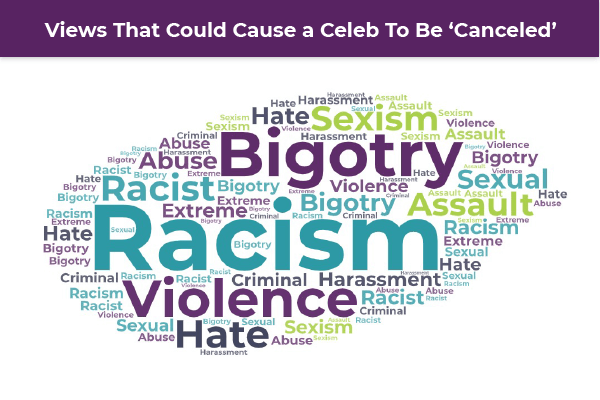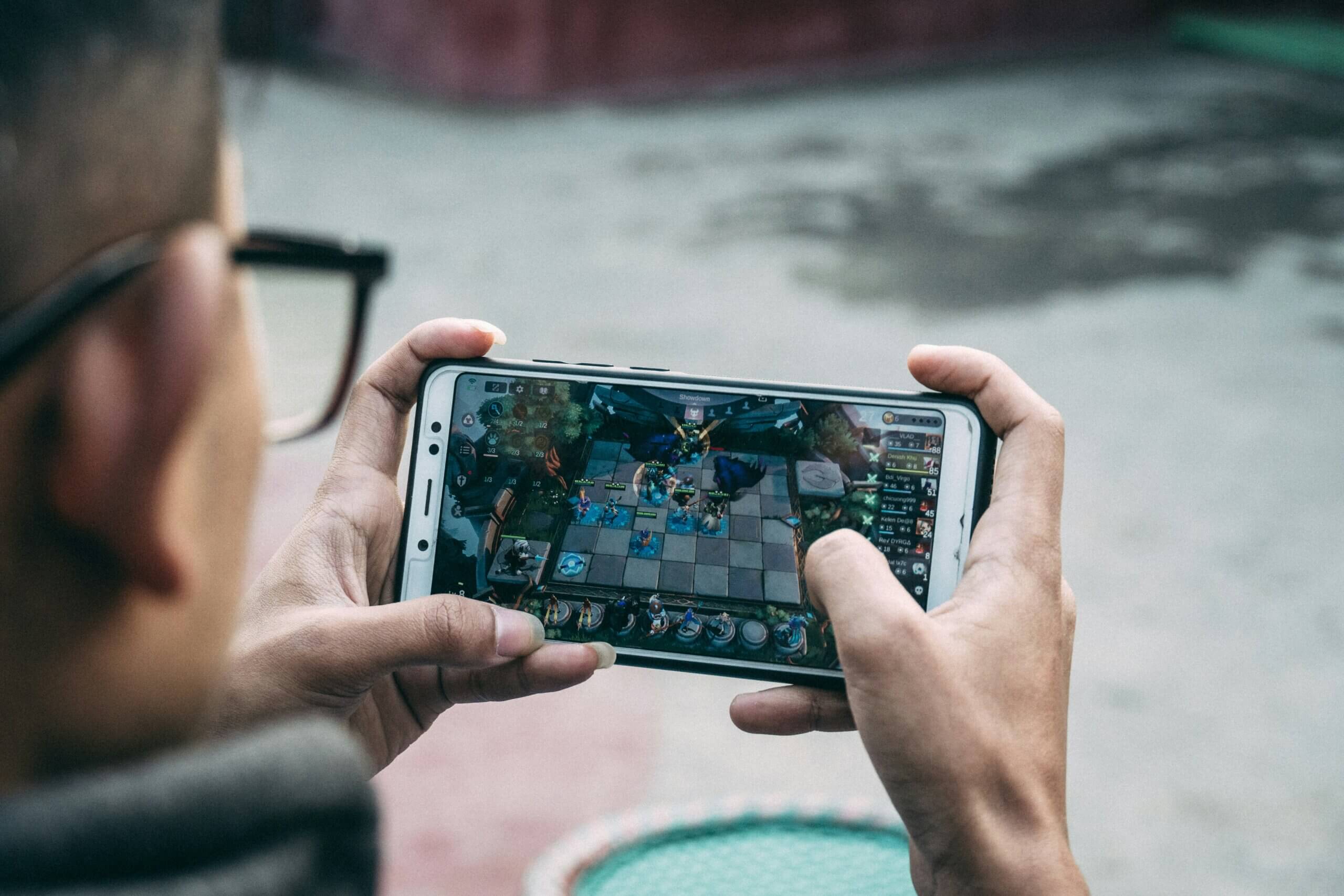The term “cancel culture” has been thrown out a lot lately, but is the meaning widely understood? According to our recent research among 1,818 Americans aged 18+, 47% overall indicate they have heard the term and know what it means. Gen Z is most familiar with this meaning (73%), with this number continuing to decline by generation (dropping to 34% of Boomers). Interestingly, another 26% have heard it but don’t know what it means and 27% are fully unfamiliar with the term.
Among those aware of the meaning, over half (55%) indicate that cancel culture has gotten out of hand and needs to stop. Of the balance, 32% think cancel culture is “acceptable sometimes, but it depends on the specific issue and viewpoint” and 13% view it as acceptable in most cases. While some may associate Gen Z with the influencer culture who hasn’t known life before social media, perhaps this social media savviness has clued them in to which celebrities are on the brink of becoming “cancel culture casualties”; this generation is least likely to feel cancel culture has gotten out of hand (44%).
Additionally, we asked those who feel “it depends on the specific issue and viewpoint” to comment on which issues are potentially worthy of cancellation. The top responses are presented in the word cloud below.

What are the most common conscious actions taken against a celebrity or company after questionable actions or beliefs? Our panelists were most apt to:
- Refuse to buy something from a specific store/brand because of their company’s controversial views or actions
- Unfollow a celebrity on social media because they disagreed with their views
- Stop consuming media because of the controversial views or actions of a celebrity
By generation, Gen Z and Millennials are generally more apt than Gen X and Boomers to have taken these actions.
Another interesting finding: most celebrities won’t get three strikes to prove they don’t deserve to be canceled; 40% who have consciously taken action against a celebrity did so after their first incident and 31% did so after the second incident.
Finally, is it possible to overhaul your image after being canceled? Perhaps, if you take the right actions. Specifically, our respondents would be willing to consider forgiving a celeb they canceled if they showed they are working to understand the other side of the controversy (43%), with a public apology identified as something that might hold sway for 32%. Secondarily, 25% may reconsider if the celeb donated time to a charity/cause that was impacted by their previous actions and/or consciously stepped down from a role or position due to their behavior.
If you are looking to understand whether your ad resonates for your target audience and doesn’t run the risk of “cancellation,” leverage our ad effectiveness solution!

Bess Devenow
Share This Article
Recent Press Releases
Prodege Unveils Conversational AI Within Pollfish Platform, Empowering All Customers to Access Real Human Insights at ScaleEL SEGUNDO, Calif., May 21, 2025 (GLOBE NEWSWIRE) -- Prodege, a leading provider of consumer insigh [...]
FAA Cuts, Airline Incidents Spark Consumer Fear: 55% Report Rising Anxiety About Air TravelA new Prodege study reveals majority of travelers report increased anxiety about flying amid recent [...]
Prodege to Deliver Over $250 Million in Revenue to Mobile Gaming Clients in 2025 Through Rewarded User AcquisitionStrategic Team Expands to Assure Gaming Leadership EL SEGUNDO, Calif., Jan. 30, 2025 (GLOBE [...]









